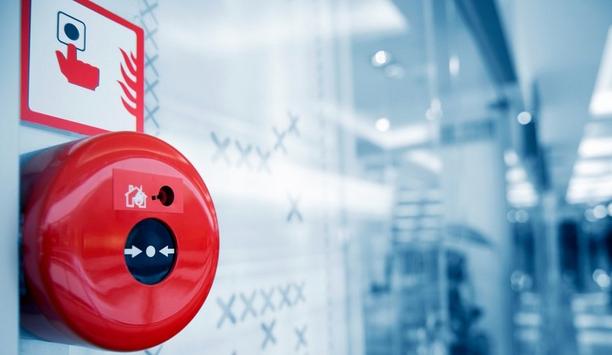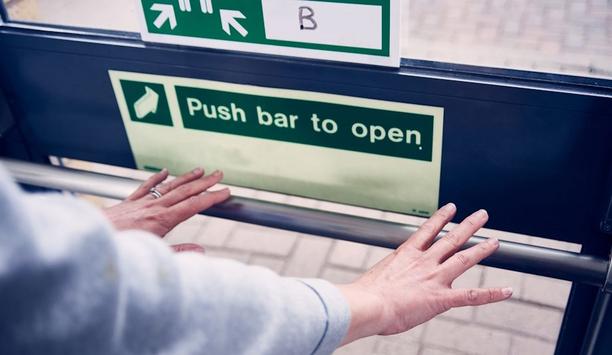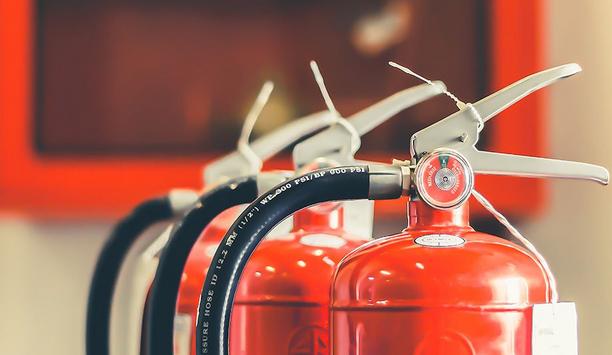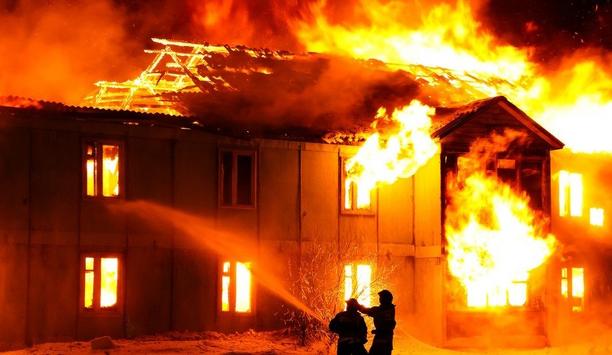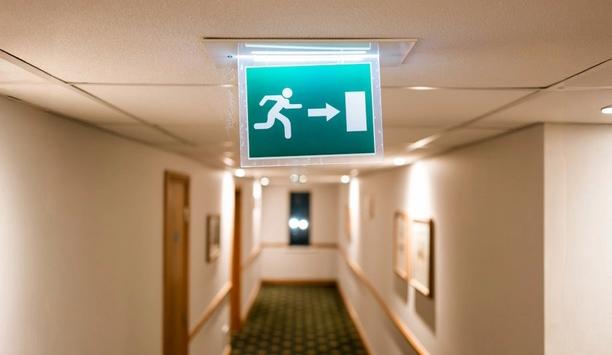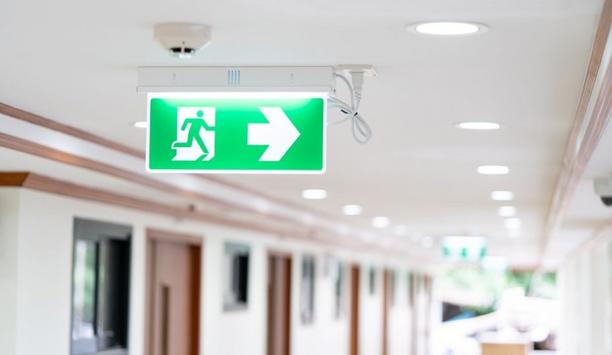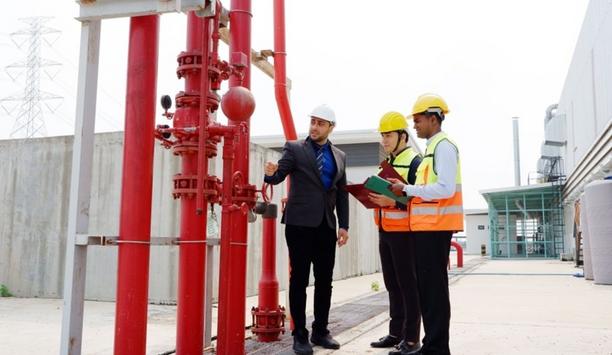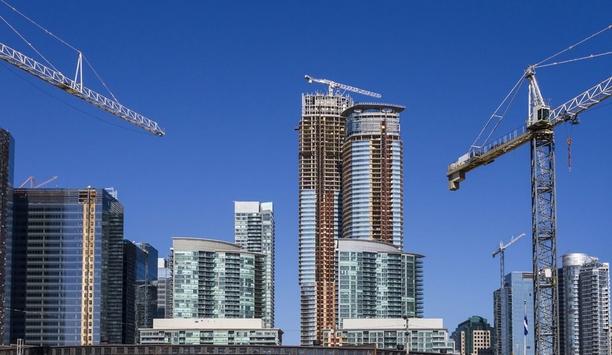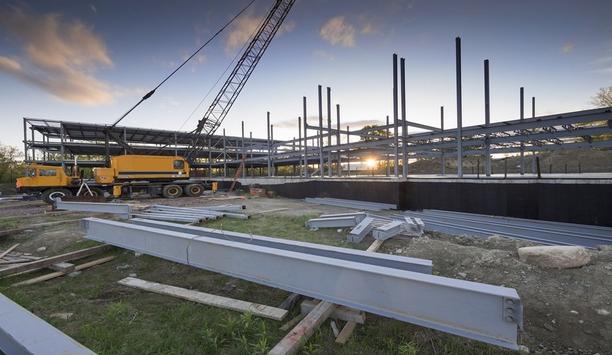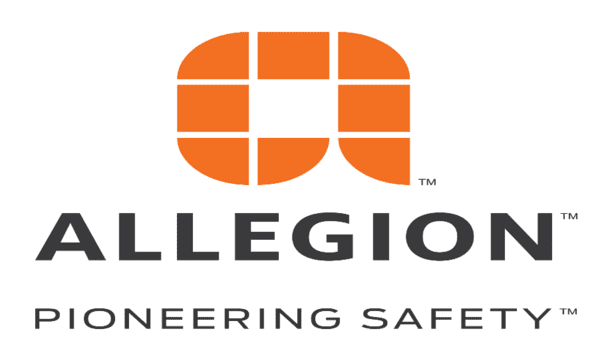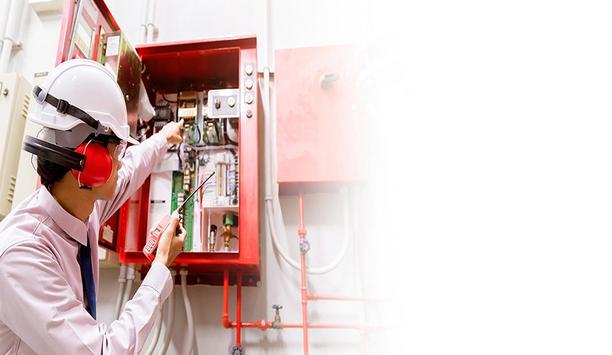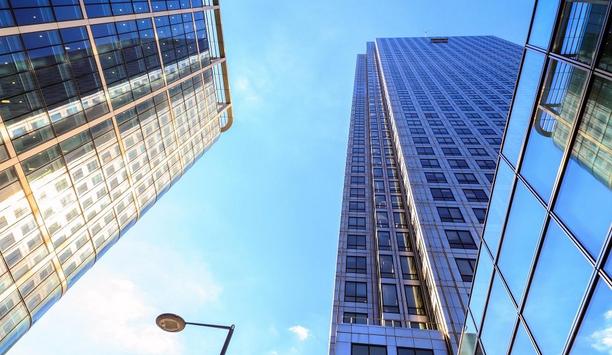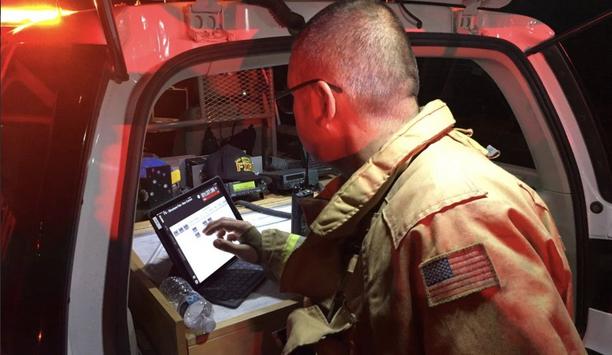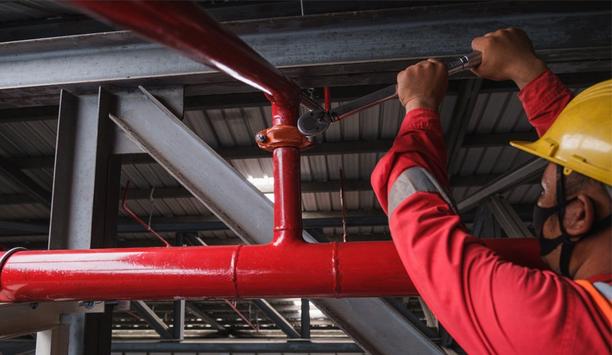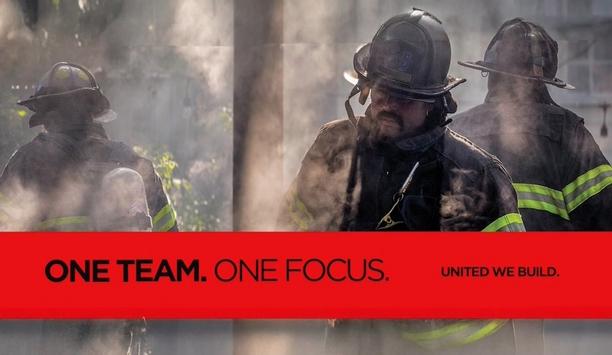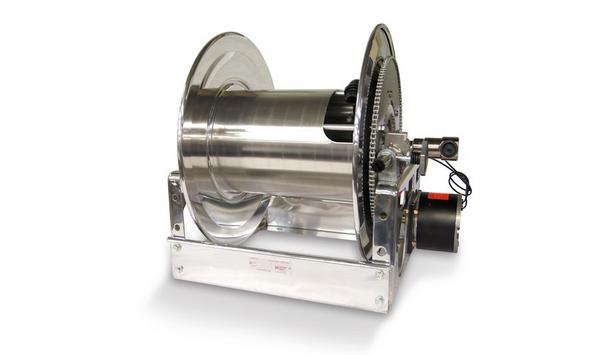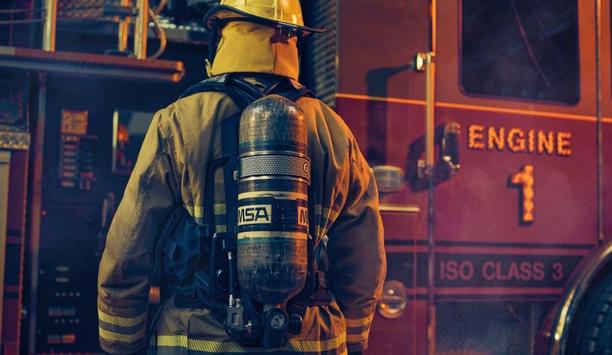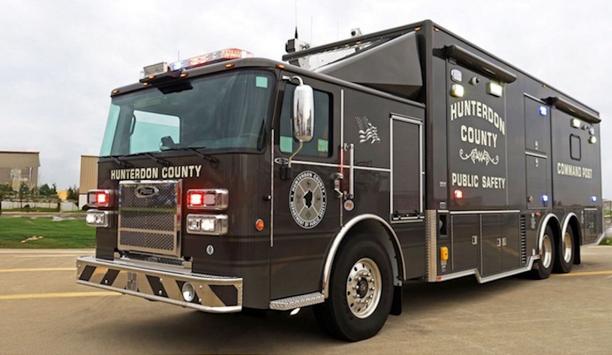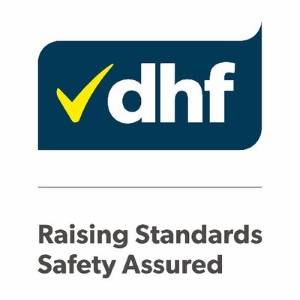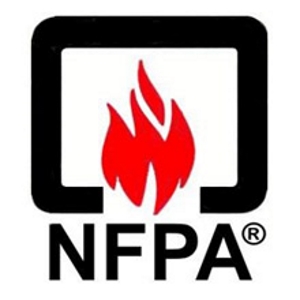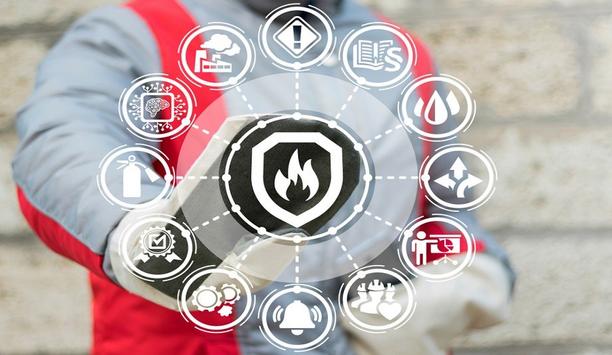Expert Commentary
The National Fire Protection Association (NFPA) has developed over 300 codes and standards to support the rapidly changing needs of the fire and life safety industry. NFPA 72, National Fire Alarm and Signaling Code®, is perhaps one of the most wide-ranging, designed to “meet society's changing fire detection, signaling, and emergency communications demands.” Development of building solutions Updated every three years, the 2025 edition of NFPA 72 took effect on September 18, 2...
Healthcare environments are synonymous with caution, wellness and safety. Though, where National Health Service professionals work determinedly to meet the needs of their patients, equally as vital are the fire door safety procedures practiced throughout NHS premises. Fire safety management plays a crucial role in all healthcare settings, where protecting staff, visitors and potentially vulnerable patients is a continuous effort. Highest level of fire safety A survey led by BWF found that 52%...
Nearly a decade has passed since the devastating Grenfell Fire, and still the UK construction industry finds itself grappling with the imperative of ensuring fire safety standards in residential buildings. A key issue is the gathering, administration and distribution of up-to-the-minute, whole-life building data; vital information, for safeguarding residents during emergencies. Despite the urgent need, information voids and data deserts continue to plague the built environment. Notably in olde...
It is no secret that electricity can have a significant impact on the fire industry, and this is not just something that is restricted to a single country. Daily, we see the devastation that improper electrical wiring and defective products can have on a global scale. Personal injury, property loss, and death can all wreak havoc on those working within the fire service and other first responders, not to mention the significant impact on the entire community where the events take place. ...
Safe and seamless movement in our built environment hinges on accurately specified and installed door hardware, explains Russell Marks, managing director of Boss Door Controls. With millions of doors used each and every day, it’s important to recognize the details behind effective access and egress. Whether it’s the regular composite doors found in our homes, the electromechanical access points located in public settings, or the emergency exit fire doors that keep us safe in our wor...
The 2022 Building Safety Act, instituted in direct response to the Grenfell Tower tragedy in London, UK, has outlined a raft of new responsibilities that building owners and managers must adhere to, in line with many of the deficiencies identified post-2017. With the UK’s building stock notoriously aging, many of us live and work in buildings that were built under outdated regulations and have not been updated for decades in some cases. As such there is an enormous amount of remedia...
Are people too passive when it comes to fire door safety? Research conducted by the British Woodworking Federation (BWF) in 2022 would suggest so, with a third of the British public stating they would not report a problem with a fire door, despite three-quarters of respondents believing a propped open fire door would not perform its role in the event of a fire. From schools and shops to shared areas of employment and accommodation, people are habitually - and sometimes unknowingly - kept safe b...
When fire safety fails, lives are put at risk. In all buildings, reasonable steps must be made to reduce the likelihood and impact of fire, yet, many people remain unsure and indecisive toward fire safety practices and the roles and responsibilities associated with fire door safety. In view of this, in October 2023, new fire safety legislation was introduced to non-domestic properties in England and Wales. Section 156 of the Building Safety Act 2022 (BSA) has made a number of amendments to the...
In the challenging world of fire safety and security services, organizations are constantly juggling the need to maintain high efficiency with the relentless push for technological advancement. This industry, marked by a high volume of daily tasks and the necessity for rapid, sometimes unplanned responses, calls for robust and adaptive solutions. Yet, surprisingly, many fire safety and security engineers still rely on outdated tools like text messaging and spreadsheets. So, we must ask: is out...
The performance and reliability of fire doors can be undone by inaccurate hardware installation. Karen Trigg of Allegion UK explains the significance of installer competence and how responsible persons should approach fire door hardware fittings to ensure lives aren’t put at risk. fire doors For a building to be considered fire-safe, it must have functioning fire doors. A crucial element of passive fire protection, fire doors are recognized as a legal requirement in non-dom...
For firefighters, sleep is a valuable commodity. But duty often calls no matter what the clock says. Sleep deprivation Indeed, sleep deprivation is a common challenge for firefighters everywhere. The job often demands long shifts peppered with irregular and unpredictable sleep patterns, not to mention the incredible stress that can be inherent to the profession or the physical demands of a long career in fire service. Prioritizing good sleep habits Sleep is the body'...
Daniel May of Consort Architectural Hardware discusses the proposed standard change from BS 476 to EN 1634-1 and the impact it may have on door hardware and the built environment should it pass. Building regulations Building regulations are designed to govern the methods and materials used throughout construction projects. For decades, modern regulations have developed to form a minimum standard and without them, many structures would be considered dangerous and risking the safety...
Sue Corrick of Allegion UK explores the evolution of panic and emergency exit hardware, examining the specification and installation points that decision-makers must consider throughout modern applications. The swift evacuation of a building and its occupants is critical in an escape or emergency situation. For decades, escape doors and exit hardware have been co-dependent in their purpose of facilitating safe egress when it matters most. Elements of public safety In fact, exit hardware has b...
Using technology to provide the information required under the new Building Safety Act 2022, which has been enforceable since October 1st, can help relieve the pressure on suppliers who are responsible for submitting the data, says Bob Glendenning, Fire Design Engineering Manager of Sherwin-Williams Protective & Marine Coatings. Building Safety Act The Building Safety Act is designed to take forward a fundamental reform of the building safety system and address the issues identi...
In the six years since the tragic Grenfell Tower disaster, the construction industry's approach to fire safety has faced rigorous examination, and sparked a series of legislative changes, most notably the enactment of the Building Safety Act and Fire Safety Act of 2022. These measures have substantially raised standards, contributing to a safer overall industry. As we approach the year’s end, assessing the industry's progress and its trajectory becomes a crucial endeavor, especially consi...
Working fire doors are a prerequisite for fire safety, but what differentiates them from regular doors Kirk Smith of Allegion UK outlines the technical features that form fire-rated doors as we know them. Research indicates there may be around 42 billion doors found throughout the world’s built environment. Every day, each of those doors plays a purposeful role toward the accessibility, safety and security of buildings and their occupants-but how many people truly recognize what they...
The terms under the new Building Safety Act 2022 became enforceable from October 1st this year. Here, Bob Glendenning, Fire Design Engineering Manager of Sherwin-Williams Protective & Marine Coatings, examines why creating a ‘Golden Thread’ of information within the new legislation is so important for those involved in the intumescent coatings industry. Building Safety Act 2022 The Building Safety Act 2022 (BSA) has been developed as a new framework for the design,...
With new fire safety regulations around the corner and a renewed focus on responsible persons and coordination, Karen Trigg of Allegion UK discusses the significance of fire door hardware and why regular inspections and maintenance periods must remain high on the agenda. Fire doors and their hardware are often the first line of defense in the event of a fire. Working in tandem, they coexist as a core element of a building’s passive fire protection system, providing valuable protection and...
The terms under the new Building Safety Act 2022 start to become enforceable from October 1st, 2023. Here, Bob Glendenning, Fire Design Engineering Manager of Sherwin-Williams Protective & Marine Coatings, looks at how early engagement can help engineers and those in the supply chain negotiate their way through the challenges it presents. New Building Safety Act 2022 The new Building Safety Act 2022 (BSA) has been developed as a new framework for the design, construction, and occupation...
While the technology sector was once considered the most desirable in terms of salary and job security, recent layoffs have exposed its vulnerability. Job security has always been a sought-after job benefit, and one career path that’s often overlooked is skilled trades. The skilled trades industry stands out as a resilient sector, offering the next generation of workers a promising path for growth and professional development through on-the-job experience and education. Significant tal...
Across the globe, the decarbonization of our planet has become a focal point for construction. Between legislative requirements and market demand, industry pioneers remain under constant pressure to reach environmental targets, and upon exploring some of the more distinct routes, it’s important to consider what more can be done with construction materials. Environmentally conscious products Research has shown that approximately 55% of extracted raw materials are used to develop th...
The construction sector has faced heightened scrutiny regarding its handling of fire safety in recent years. 2017’s devastating Grenfell Tower fire, served as a catalyst for reform on the testing of construction materials, building design, and construction practices, putting the focus back on occupant safety. In April this year, prominent fire service providers echoed this sentiment. They emphasized the importance of comprehensive system testing over solely examining individual comp...
The fire risks associated with multi-occupied residential buildings remain high on the sector’s agenda, and the latest wave of fire safety reforms can help address key concerns, says Karen Trigg of Allegion UK. raising fire safety standards In recent years, high-rise and high-risk building environments have been the subject of much industry focus. Where Grenfell was a catalyst for change, the incremental introduction of new reforms (such as the Fire Safety Act 2021 and Build...
It’s been three years since the National Fire Protection Association (NFPA) published the most recent edition of the wide-ranging standard that spans “the application, installation, location, performance, inspection, testing and maintenance of fire alarm systems, fire warning equipment, and emergency warning equipment and their components.” 2022 update A 2022 edition was officially published in September 2021, after thousands of hours of collaboration, review, and debate amon...
The importance of understanding the revised Code of Practice for Category 3 Control fire performance cables which reduce harmful smoke, toxic gases, and flame spread in the event of a real fire cannot be stressed enough. approved cabling These cables maintain the circuit integrity of a building providing power for essential services and fire-fighting systems for fire and rescue services to carry out a safe evacuation in the case of life safety. AEI Cables has won widespread support for our in...
As a company officer, the day will come where you and your crew are first to arrive at what looks like the beginning of a major incident. Your Battalion Chief (BC) is delayed or diverted to other incidents, so YOU are the Incident Commander (IC). How you set the table for this incident with regard to quickly setting up the Incident Command System (ICS) is critical. And how you use your channels of communication, including the ways you communicate, will be crucial to your success. Before we jump...
Electric wiring systems are mostly hidden and embedded in the construction, ceiling spaces, riser shafts, or wall cavities. Cables are installed in buildings by many different trades for different applications and often in polymeric conduit and ducting systems. What is not often realized is that the many miles of cables and many tons of plastic polymers which make up the wiring system can represent a major fixed fire load in a building. Fire Spread & Flame Retardance Most common flex...
The fifth anniversary of the Grenfell Tower disaster has passed, yet debate surrounding building safety best practice continues. Last year, the UK Government announced steps to further reform the building safety system with what it described as ‘the biggest changes in a generation’ to ensure the safety of residents in their homes. Within these new measures, mandatory sprinkler systems and consistent wayfinding signage were announced in all new high-rise blocks of flats over 11 meter...
Under guidance from the Architects Registration Board, architectural students are set for a change in curriculum. Karen Trigg of Allegion UK explores this decision and why industry collaboration is central to improving fire safety education and paving the way to a safer future. In evolving construction industry, the approach to building design is ever-shifting. Yet, as the complexity of projects intensifies, safety and sustainability remain fundamental areas of focus, and according to architect...
There’s no doubt the Building Safety Act and Fire Safety Act are driving major improvements in the construction industry’s quality and approval processes. Although the initial focus of the legislation is on high-rise residential buildings, it’s predicted to be rolled out across the entire sector soon, tightening fire safety regulations in hospitals, hotels, and commercial offices and we await the rafts of secondary legislation that will really redefine the regulatory landscape....
FDIC International 2025 news
Rosenbauer America announces the launch of its new Custom Industrial Foam Pumper, a state-of-the-art fire apparatus specifically designed to tackle the unique and demanding challenges of industrial fi...
Pierce Manufacturing Inc., an Oshkosh Corporation business, is set to feature its latest innovations in fire apparatus and advanced technology at the Fire Department Instructors Conference (FDIC) 2025...
As worker injuries and public safety risks continue to rise, safety technology pioneer Blackline Safety Corp. has announced record growth in the number of fire hazmat customers using its connecte...
Hannay Reels will be showcasing various high-quality reels for fire applications at the FDIC show that is taking place in April. They will be in booth 4069 at the Indiana Convention Center in Indianap...
Innovation in the fire service is a continuous journey, where changing customer needs are driving forces in developing the newest safety solutions. For MSA Safety, that means taking the best and makin...
Frontline Communications, a division of Pierce Manufacturing Inc., an Oshkosh Corporation business, is proud to announce the upcoming delivery of a new Saber® C-40X-4 mobile command vehicle t...
Rosenbauer America, a pioneering manufacturer of fire apparatus and firefighting equipment, will be showcasing its latest advancements in technology at FDIC International 2025 in Indianapolis, IN. At...
Rosenbauer America announces the launch of its new Custom Industrial Foam Pumper, a state-of-the-art fire apparatus specifically designed to tackle the unique and demanding challenges of industrial fi...
Pierce Manufacturing Inc., an Oshkosh Corporation business, is set to feature its latest innovations in fire apparatus and advanced technology at the Fire Department Instructors Conference (FDIC) 2025...
As worker injuries and public safety risks continue to rise, safety technology pioneer Blackline Safety Corp. has announced record growth in the number of fire hazmat customers using its connecte...
Hannay Reels will be showcasing various high-quality reels for fire applications at the FDIC show that is taking place in April. They will be in booth 4069 at the Indiana Convention Center in Indianap...
Innovation in the fire service is a continuous journey, where changing customer needs are driving forces in developing the newest safety solutions. For MSA Safety, that means taking the best and makin...
Frontline Communications, a division of Pierce Manufacturing Inc., an Oshkosh Corporation business, is proud to announce the upcoming delivery of a new Saber® C-40X-4 mobile command vehicle t...
Rosenbauer America, a pioneering manufacturer of fire apparatus and firefighting equipment, will be showcasing its latest advancements in technology at FDIC International 2025 in Indianapolis, IN. At...
Rosenbauer America announces the launch of its new Custom Industrial Foam Pumper, a state-of-the-art fire apparatus specifically designed to tackle the unique and demanding challenges of industrial fi...
The Fire Safety Event 2025 news
Cygnus, a pioneering developer and manufacturer of EN 54-certified and 100% wireless fire detection and alarm systems, will be celebrating an important milestone at this year’s Fire Safety Event...
Allegion UK, alongside its family of pioneering door hardware brands, is set to present a complete fire door solution at The Fire Safety Event, taking place between the 8th and 10th April at the NEC,...
Lorient and ASSA ABLOY are excited to announce their debut at the UK’s fastest-growing fire safety exhibition, The Fire Safety Event 2025, taking place at the NEC, Birmingham, from 8th to 10th A...
The Fire Safety Event 2025, a cornerstone of the industry calendar, is poised once again to present a comprehensive display of the most advanced fire detection and suppression technologies. Taking pl...
Cygnus, a pioneering developer and manufacturer of EN 54-certified and 100% wireless fire detection and alarm systems, will be celebrating an important milestone at this year’s Fire Safety Event...
Allegion UK, alongside its family of pioneering door hardware brands, is set to present a complete fire door solution at The Fire Safety Event, taking place between the 8th and 10th April at the NEC,...
Lorient and ASSA ABLOY are excited to announce their debut at the UK’s fastest-growing fire safety exhibition, The Fire Safety Event 2025, taking place at the NEC, Birmingham, from 8th to 10th A...
The Fire Safety Event 2025, a cornerstone of the industry calendar, is poised once again to present a comprehensive display of the most advanced fire detection and suppression technologies. Taking pl...
Cygnus, a pioneering developer and manufacturer of EN 54-certified and 100% wireless fire detection and alarm systems, will be celebrating an important milestone at this year’s Fire Safety Event...
Allegion UK, alongside its family of pioneering door hardware brands, is set to present a complete fire door solution at The Fire Safety Event, taking place between the 8th and 10th April at the NEC,...
Browse expert commentaries
Expert Section
Editor's Dispatch
The New Future For Fire Agencies
DownloadThe Eight Key Trends in Fire Detection in 2023
DownloadA Digital Platform to Improve Fire Safety Compliance and Inspections
DownloadOvercoming the Challenges of Fire Safety in the Paper Industry
DownloadCarbon Monoxide: Creeping Killer Caught In The Act
Download